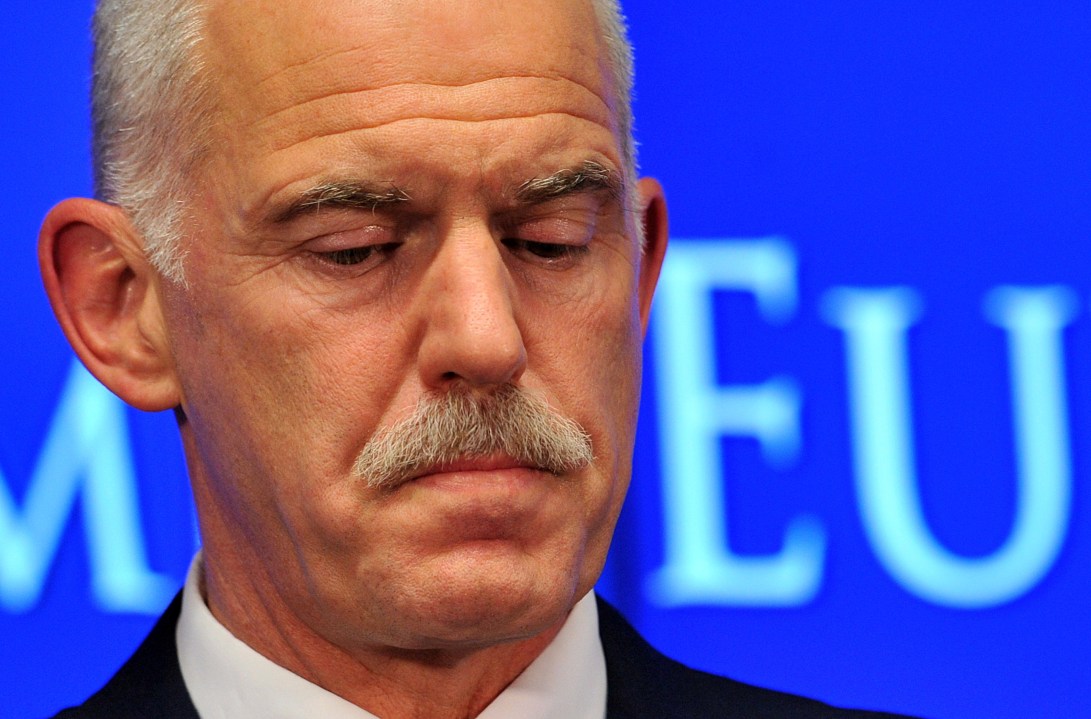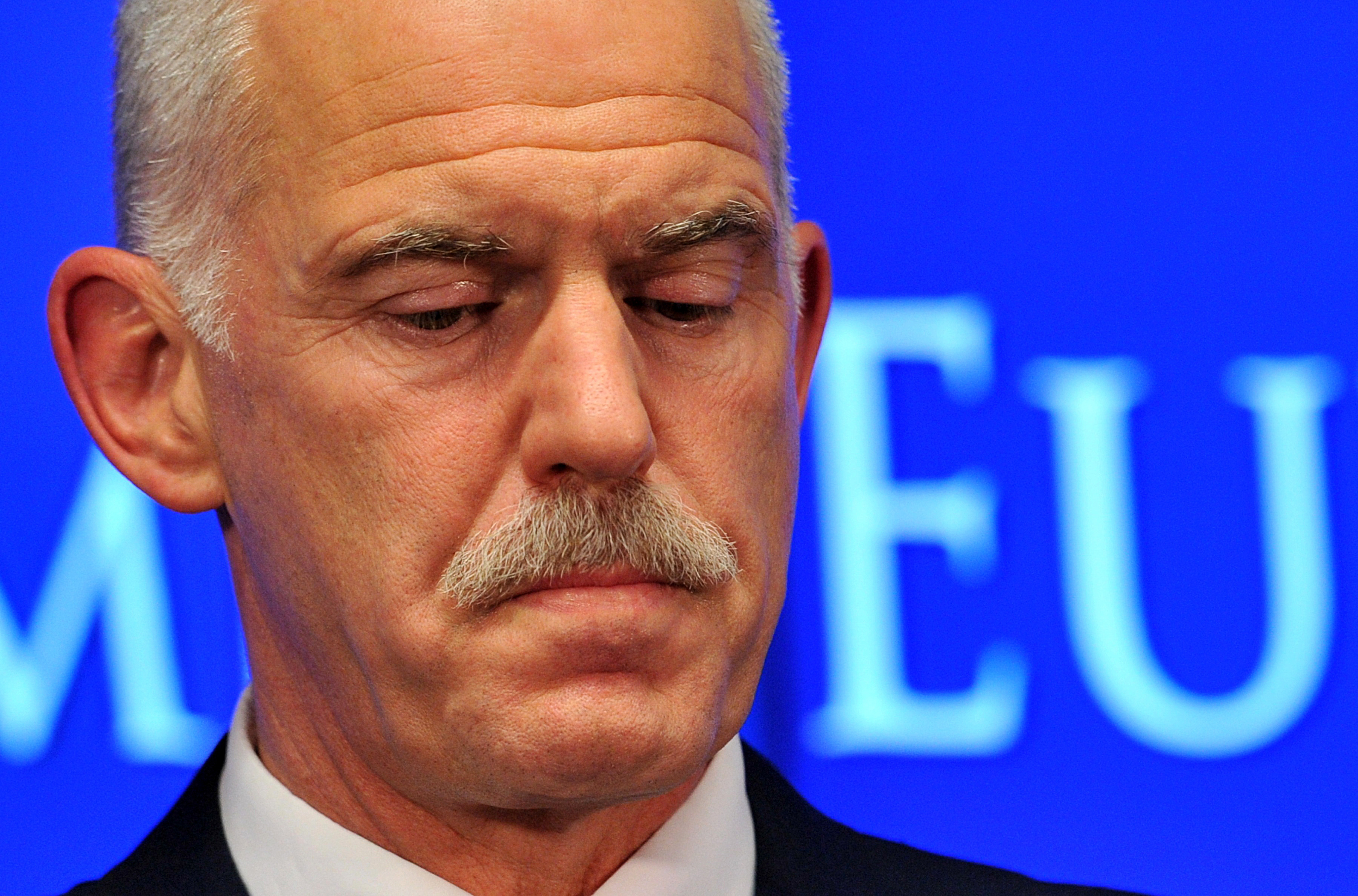 This is not Greek tragedy, it is a farce. Prime Minister George Papandreou’s idea to
hold a referendum on the Greek deal has done the exact opposite of what he must have intended. Instead of giving him a new mandate, it seems it will take the existing one away from him. Several MPs
and PASOK officials have called for his resignation or for the formation of a National Unity Government. Some
have even resigned, reducing the government’s majority in parliament. European reaction has arranged from studied politesse to outrage. Ireland’s Europe minister has called the referendum idea a
“grenade”. Privately, European politicians are seething.
This is not Greek tragedy, it is a farce. Prime Minister George Papandreou’s idea to
hold a referendum on the Greek deal has done the exact opposite of what he must have intended. Instead of giving him a new mandate, it seems it will take the existing one away from him. Several MPs
and PASOK officials have called for his resignation or for the formation of a National Unity Government. Some
have even resigned, reducing the government’s majority in parliament. European reaction has arranged from studied politesse to outrage. Ireland’s Europe minister has called the referendum idea a
“grenade”. Privately, European politicians are seething.
The Greek PM must know he has stepped in it, as his closest allies are busy briefing the press about his decision. But reports are emerging that his own Finance Minister was not informed, having been taken to the hospital earlier. The man born to rule Greece, following in the footsteps of his grandfather and father, seems to have lost his footing. If he survives the next 24 hours, he is unlikely to survive the next 24 days.
What does this mean for Greece? If Papandreou is replaced by a member of PASOK, perhaps Finance Minister Evangelos Venizelos, then the referendum would probably be cancelled and the loan agreement go ahead as planned. If an election is called, or a government involving the main Greek opposition takes place, then a referendum is off the table but so may be Greece’s loan package. Opposition leader Antonis Samaras has been against every step of Papandreou’s strategy.
The Greek situation neatly sums up the problem facing European leaders. What’s necessary to placate electorates is not enough to please the markets. And vice versa. So though it theoretically make sense to ask Greeks what they want, it is a disastrous policy in the current situation. As Swedish foreign minister Carl Bildt said: “It is difficult to see what the referendum is going to be about — do we want to be saved or not?”







Comments